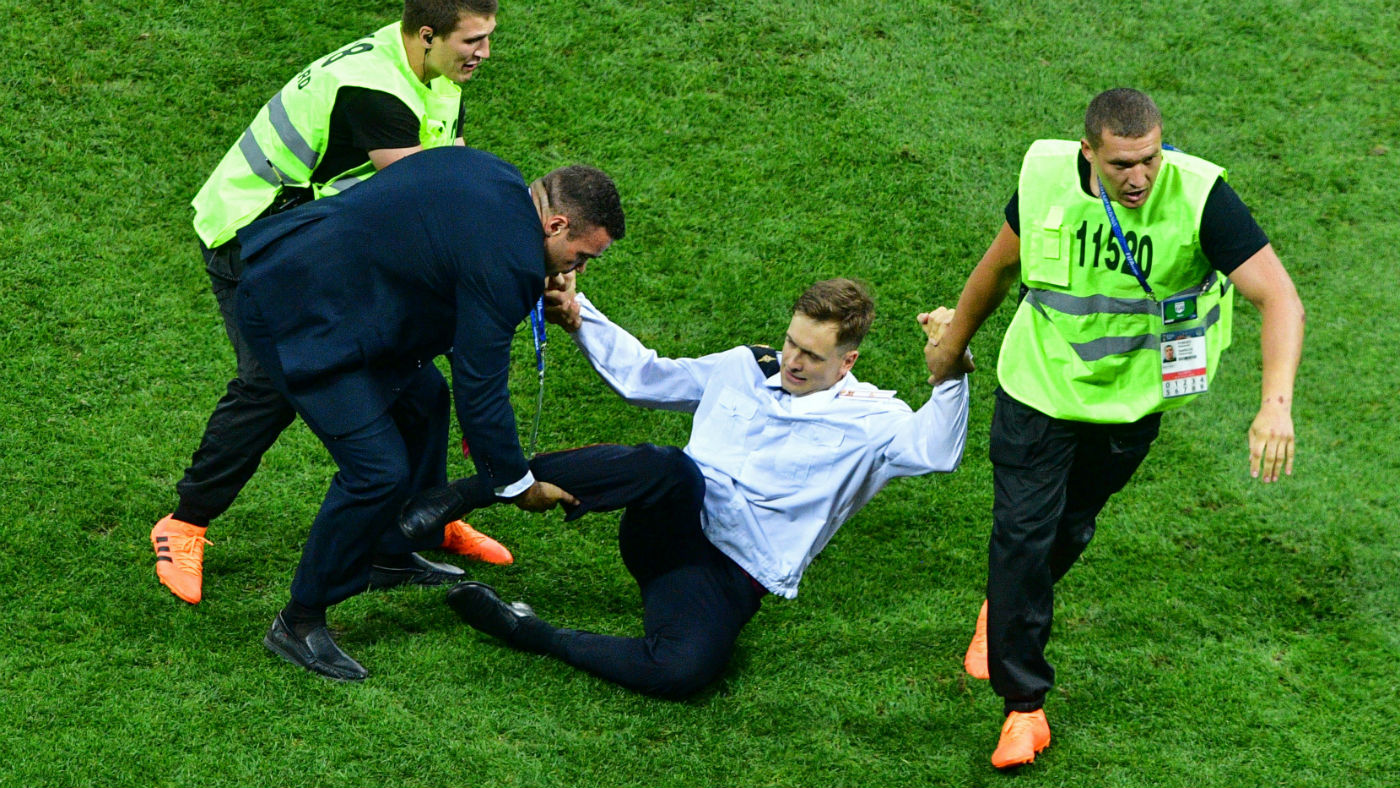Did the Kremlin poison Pussy Riot activist?
‘Highly probable’ leading Putin dissident poisoned, say German doctors

A free daily email with the biggest news stories of the day – and the best features from TheWeek.com
You are now subscribed
Your newsletter sign-up was successful
It is “highly probable” a member of Russian protest group Pussy Riot who fell ill last week was poisoned, German medics have concluded.
Pyotr Verzilov, one of four Pussy Riot members who ran on to the pitch during the football World Cup final in Moscow, fell ill on 11 September after attending a friend's court hearing in Moscow and has been receiving intensive care since arriving in Berlin on Saturday.
Speaking at a press conference yesterday, Dr Kai-Uwe Eckardt of the Berlin Charite Hospital said that an external substance appears to have affected Verzilov's nervous system.
The Week
Escape your echo chamber. Get the facts behind the news, plus analysis from multiple perspectives.

Sign up for The Week's Free Newsletters
From our morning news briefing to a weekly Good News Newsletter, get the best of The Week delivered directly to your inbox.
From our morning news briefing to a weekly Good News Newsletter, get the best of The Week delivered directly to your inbox.
The rapid onset of symptoms, including widely dilated pupils, high blood pressure and dry mucous membranes, was strongly indicative of a poison, Dr Eckardt said.
While Dr Eckardt said doctors cannot say how he might have been targeted or who was responsible, CNN says “the announcement adds weight to claims made by other Pussy Riot members on Thursday that Verzilov was poisoned in Russia” with founding member Nadezhda Tolokonnikova saying that he was probably the victim of an “assassination attempt”.
Berlin-based NGO, The Cinema for Peace Foundation said the attack must be “regarded as revenge for appearing in the World Cup final to support human rights in Russia”, which Pussy Riot claimed was aimed at highlighting the plight of political prisoners held by the Kremlin.
The Russian punk band, known for obscuring their identities with colorful balaclava-style masks, are outspoken critics of the Putin government and its members have repeatedly been targeted by state authorities and imprisoned over the years.
A free daily email with the biggest news stories of the day – and the best features from TheWeek.com
Early last year Vladimir Kara-Murza, a Russian opposition politician and well-known Kremlin critic suffered suspected poisoning, and was rushed to intensive care following organ failure during a sudden illness.
Nevertheless, if true, Verzilov’s poisoning would mark a dramatic escalation against the most high-profile anti-Putin protest organisations, and comes amid a growing international outcry over the Salisbury poisoning of a former KGB spy and his daughter by Russian agents.
Verzilov is a joint Russian-Canadian citizen and Canadian Prime Minister Justin Trudeau has said the that the situation is of concern, “particularly given actions of recent months by the Russians in the UK.”
While his condition remains serious, doctors in Berlin said they expect Verzilov to return to full health.